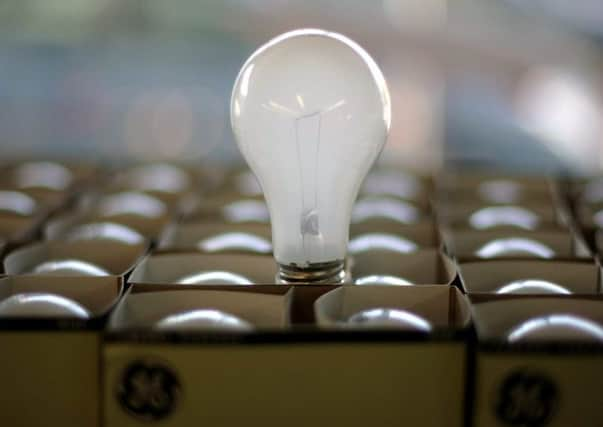Scottish independence energy bill warning


Scotland would need to meet the full £1.8 billion subsidy bill for renewable energy schemes such as windfarms and wave and tidal schemes, the latest Scotland Analysis report has found.
But the claims have been dismissed by SNP energy minister Fergus Ewing, who insists that the “plentiful Scottish electricity generation” can help keep bills down across the UK.
Advertisement
Hide AdAdvertisement
Hide AdThe Scottish Government has published its own report which warns that the UK is facing an energy “crisis” as the margin between demand and supply grows ever tighter.
UK Energy Secretary Ed Davey claims a Yes vote would lead to Scotland investing less in renewables, ahead of the publication of a new paper on independence tomorrow from the UK government, looking at its impact on the energy sector.
The coalition government believes that the UK’s economic stability and its single regulator for the industry makes it attractive for investors, saying businesses have announced £14 billion of investment in renewables in Scotland, which has the potential to create some 12,000 jobs.
It also argues that Scotland gets a disproportionately high share of support for green energy, receiving 28 per cent of subsidies for renewables while the country accounts for 10 per cent of electricity sales.
Mr Davey said: “Going green will become far more expensive if Scotland goes it alone. The Scottish consumer would see their energy bills rocket if they have to pay for Scottish renewables alone, without contribution from the rest of the UK.
“Right across the energy mix, Scotland benefits from being part of the UK’s strong, stable consumer and tax base – supporting thousands of jobs, creating new supply chains and cementing the energy sector as the engine room of the economy.
“The likely result would be an independent Scotland investing less in renewables – which would be bad for jobs, bad for clean energy industries and bad for the world’s climate.”
But Mr Ewing said: “Scotland’s huge natural resources mean that we can supply electricity – reliably and affordably. This is the case now, and in the event of independence.
“The UK government’s mixed messages on renewables have led to confusion and uncertainty for the renewable industry.”